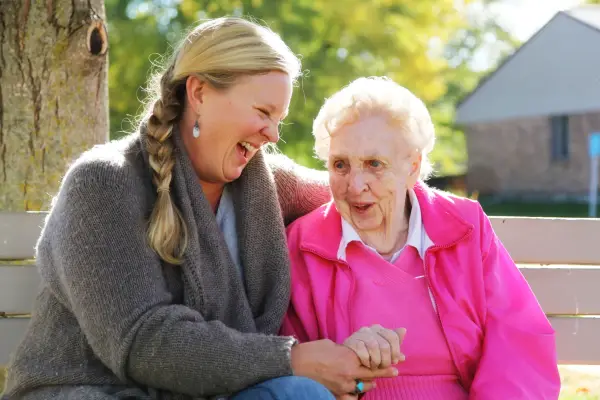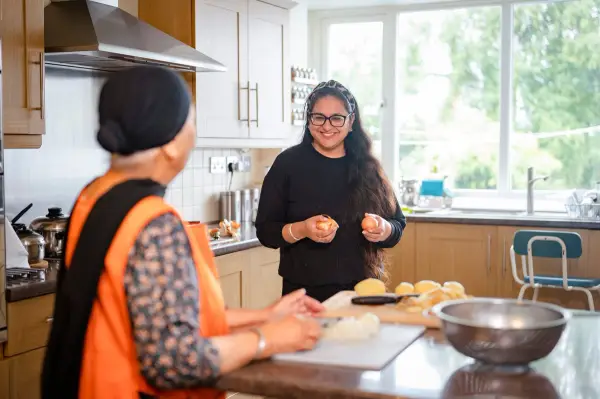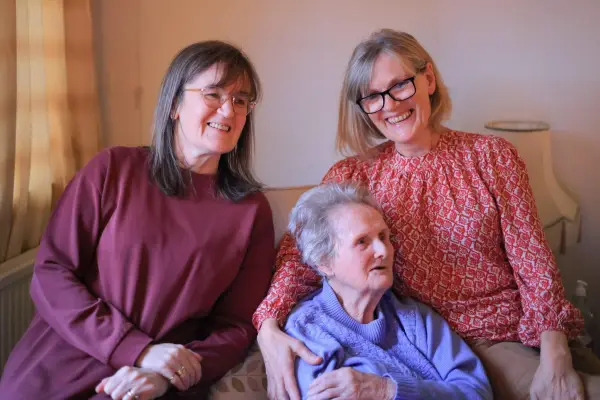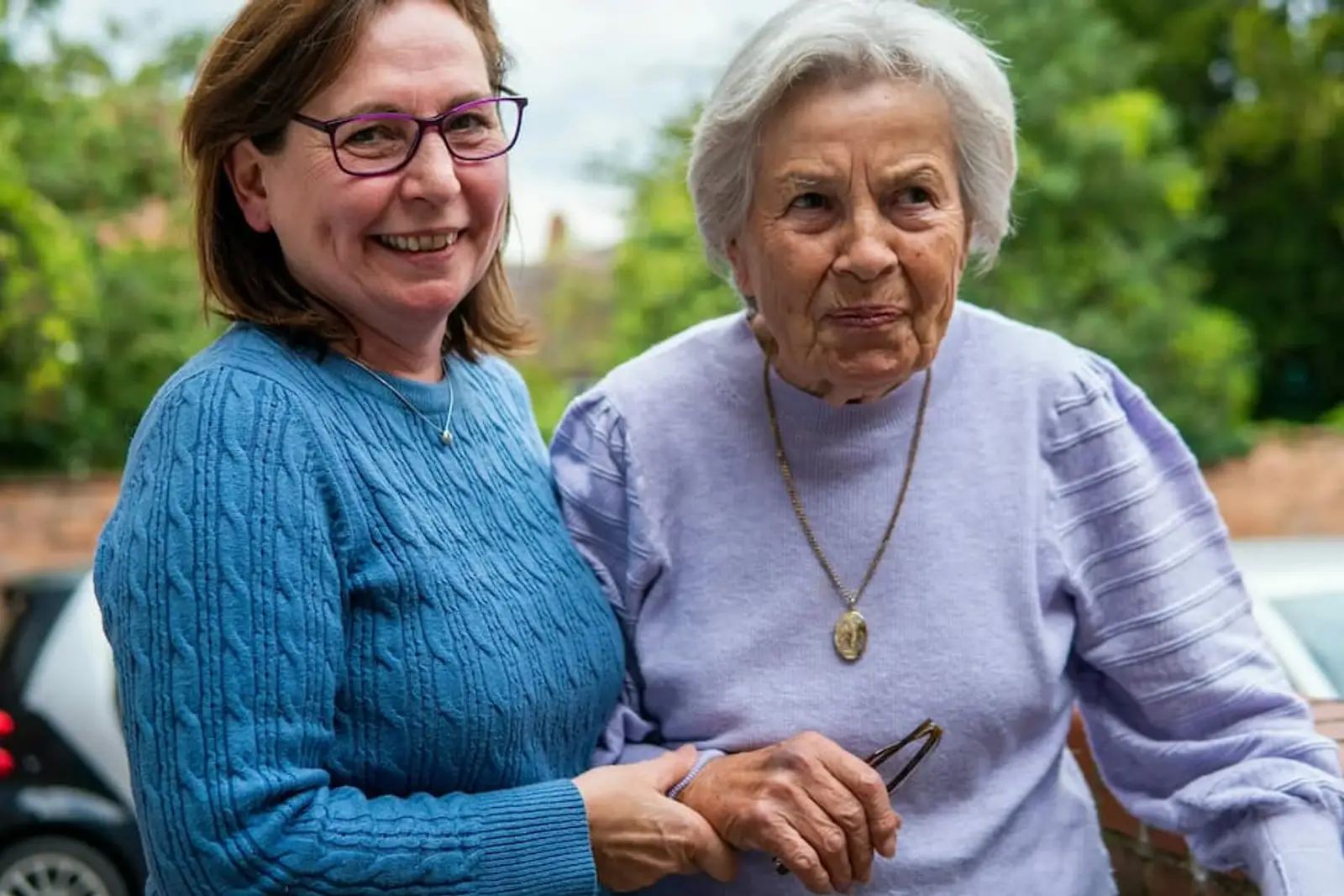Find the right carer and keep the life you know and love
Elder is an award-winning marketplace connecting families and self-employed home carers across Great Britain.

More Value
On average, services facilitated by Elder are 35% cheaper than traditional alternatives.
More control
Whenever and however you need it, you set the scope of your service.
More choice
Pick your favourite self-employed carer from personalised matches.
More support
Use our platform to plan and manage care from anywhere, and chat to 5* rated support teams.
Our services

Live-in care
Long-term 24-hour support
- A carer lives in the home to provide round-the-clock support
- Suitable for people living with conditions like dementia, reduced mobility, etc.
- For long-term care needs

Respite care
Temporary 24-hour support
- A carer moves in for a few days to provide round-the-clock support
- Suitable to cover for a main caregiver or for a temporary increase in care needs
- Minimum duration of 3 days

Visiting care
Flexible home visits
- Book as many hours as you need for help in the comfort of your home
- Support with everyday tasks like grooming, walks, cooking, etc.
- From as little as 1 hour per week
MyElder is the only solution you need to arrange and manage care
MyElder is the only solution you need to arrange and manage care
The benefits of live-in care
Why 9 out of 10 elderly people would prefer to be cared for in their own home.
Personalised care
Live-in care means a focus solely on your loved one: care tailored to their unique needs and wants, from a familiar face, 7 days a week.
Better life quality
Care at home allows the elderly to preserve their independence, routines and friendships. 97% of people receiving it say it’s improved their quality of life.
Lower health risks
Moving to a care home often causes anxiety, whilst the unfamiliar location is proven to increase the chance of life-changing falls by 50%.

Qualified carers for peace of mind
All carers on Elder pass a rigorous screening which includes a background check, character and skills assessment, and verifiable professional references. Only 2% of applicants are successful. As a result, 9 out of 10 customers are very satisfied with their first carer.

Find your ideal carer
We have connected over 5000 families to carers so far.
3 easy steps to organise care
Share your care request
Tell us what you're looking for using our simple request form or speak with a dedicated care advisor to build your care profile and describe the care you need.
Select the right carer
You’ll start receiving profiles of your uniquely matched carers in 24 hours. Chat online to carers you’d like to know better, or arrange a phone or video call.
Prepare for care
Use MyElder to communicate with your chosen carer and the Elder support team, manage your care schedule, and set up secure payment.
FAQs
Still have questions?
0333 920 3648Every carer must pass our interview process and provide:
– At least 2 verifiable references
– Examples of at least 6 months’ experience
– An enhanced DBS certificate
As an introductory provider, we are unable to provide bespoke training. However, through our carer loyalty programme, carers who actively find work through our platform have access to a third-party online learning platform, where they can enhance their skills.
We match based on the skills and experience you tell us you need, for example, if your loved one has dementia, we’ll only match you to self-employed carers with experience of looking after someone with the condition. We consistently re-evaluate which carers we work with based on feedback from families.
We’ll always send you an introductory video of each carer you’re matched with – where they’ll tell you about their background, what they enjoy about being a carer, and their hobbies and interests.
Once you’ve chosen your carer, we’re happy to set up a virtual meeting too, such as a Zoom call so that you can get to know them better before they arrive.
We have a large nationwide network of 6000+ independent care professionals, and have connected families to carers in 123 of 124 postcode areas in Great Britain. This means we can usually get care in place within 24 to 48 hours if your needs are urgent.
Yes if the medications are non-controlled. However carers can prompt and remind, but aren’t allowed to administer controlled drugs and injections. If this is a hard requirement, it might make financial sense for you to have a nurse visit in addition to the main carer, rather than hiring a clinically-trained carer.
Yes. Every carer we work with must have a good level of written and spoken English.
If you’d prefer a carer who also speaks a second language, simply let us know.
No. We do our best to keep the number of carers that visit you to a minimum as we recognise the importance of routine and consistency to the elderly. Plus it allows them to do a better job, and they take pride in that.
Yes, many of our customers use funding from their local authority to cover all or part of their care costs. Often customers choose to receive their funding as a direct payment, so that they’re free to choose their own the carer provider, rather than the council picking one for them.
If you’ve not started the process of applying for local authority funding, we have mapped out the full process here.
If you or a loved one is living with an on-going health condition, it’s worth applying for NHS Continuing Healthcare too. If you meet the criteria, this form of funding will cover every penny of your care costs. However, bear in mind that this funding is reserved for complex conditions which may fall out of the scope of what a self-employed carer can provide.
No, you can book as little as 1 hour. However if you require a large number of hours, we offer live-in care which might suit you better. Our care advisors can explain it all, just give us a call if you’re unsure.
Elder is an introductory agency so we’re not CQC regulated. We’re here to help match and introduce you to a self-employed care professional, and help the ongoing relationship run smoothly. You can learn more about our status here.
Not having the status allows us to keep our prices affordable, and we still go to great lengths to ensure the quality of carers – as described above, as well as in our safety and trust guide.





